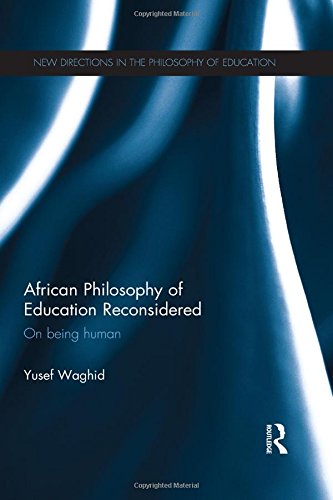

Most ebook files are in PDF format, so you can easily read them using various software such as Foxit Reader or directly on the Google Chrome browser.
Some ebook files are released by publishers in other formats such as .awz, .mobi, .epub, .fb2, etc. You may need to install specific software to read these formats on mobile/PC, such as Calibre.
Please read the tutorial at this link: https://ebookbell.com/faq
We offer FREE conversion to the popular formats you request; however, this may take some time. Therefore, right after payment, please email us, and we will try to provide the service as quickly as possible.
For some exceptional file formats or broken links (if any), please refrain from opening any disputes. Instead, email us first, and we will try to assist within a maximum of 6 hours.
EbookBell Team

5.0
88 reviewsMuch of the literature on the African philosophy of education juxtaposes two philosophical strands as mutually exclusive entities; traditional ethnophilosophy on the one hand, and ‘scientific’ African philosophy on the other. While traditional ethnophilosophy is associated with the cultural artefacts, narratives, folklore and music of Africa’s people, ‘scientific’ African philosophy is primarily concerned with the explanations, interpretations and justifications of African thought and practice along the lines of critical and transformative reasoning. These two alternative strands of African philosophy invariably impact understandings of education in different ways: education constituted by cultural action is perceived to be mutually independent from education constituted by reasoned action.
Yusef Waghid argues for an African philosophy of education guided by communitarian, reasonable and culture dependent action in order to bridge the conceptual and practical divide between African ethnophilosophy and ‘scientific’ African philosophy. Unlike those who argue that African philosophy of education cannot exist because it does not invoke reason, or that reasoned African philosophy of education is just not possible, Waghid suggests an African philosophy of education constituted by reasoned, culture-dependent action.
This book provides an African philosophy aimed at developing a conception of education that can contribute towards imagination, deliberation, and responsibility - actions that can help to enhance justice in educative relations, both in Africa and throughout the world. This book will be essential reading for researchers and academics in the field of the philosophy of education, especially those wanting to learn from the African tradition.